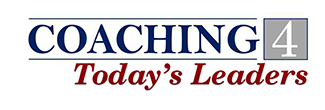
What is a coaching approach? I’ll start by describing the opposite, which I refer to as a “command and control” approach. That’s when the leader has all the answers – picture Jean Luc Picard from Star Trek: The Next Generation, the captain who is at the helm. When he had to step away, his number two took over. Someone always has to be in charge.
Instead of bringing out the best in those you lead, commanders squelch it. I’ve worked with organizations whose team members are outstanding and have great ideas, but they have to run them past this long line of people to get approval versus just acting on them.
What happens then is that these people get incredibly frustrated and start looking elsewhere. The other piece is that they begin to talk negatively about the leadership and the organization. This affects how everyone around them relates to the company, including people who don’t work there.
Yet these leaders feel that they must do things this way, otherwise work doesn’t get done. “We have to keep people on task,” they tell me, “about the specific things they’re supposed to be doing.”
Sadly, I see the weight this loads onto these leaders. Who wants to spend their days babysitting or micromanaging?
What I want to see happen is for the whole team to be excited and energized and moving. I see this start to happen when I work with a team, but then that enthusiasm gets snuffed out again.
“They think they’re delegating to us,” said one team member, “but what they’re really doing is giving us the details of their own plan, which we’re expected to just blindly carry out.”
They feel no ownership of their work at that point, and that’s a big problem. In Drive: The Surprising Truth About What Motivates Us, author Dan Pink draws on scientific research to identify the three things people need to be motivated and stay motivated:
- Autonomy – the desire to direct our own lives
- Mastery – the urge to get better, or develop skills
- Purpose – the need to do what we do for reasons bigger than ourselves
The more leaders try to command and control their team, the less autonomy those people feel. There’s so much focus on carrying out instructions that there is no time or headspace for developing mastery or a sense of purpose.
It’s the difference between lighting a fire under someone and lighting a fire within them. Commanders manage people and try to get them to do what we want them to do. Coaches help people discover what they want to do – including their broader sense of purpose and the skills that will help them achieve that.
When I first started to lead, my theme song was the William Tell Overture from The Lone Ranger. I was riding in to save the day. Using a coach approach, I don’t lead with all the answers, but by asking questions like, “How else can we look at this?” This is a way of tapping into all of the intelligence in the room.
The coach approach benefits not only the team members but also the leaders. You’re freed up. It also lights a fire within you, takes off the weight of managing, and opens the door to creative and brilliant ideas from the team. Which is exactly what today’s organizations need, whether it’s a business or a faith-based setting. Everything has changed; you can’t just stay the same. You’ve got to be tapping into that creativity.
How can you get started with developing a coach approach to leadership? The first step is to get some basic coach training yourself, and then move on to team coaching. That sets a foundation and gives everyone a common language and understanding of the process.
When I work with an organization I’ll come back every three or four months for team coaching, and I also continue to coach the top leader to help them stay in that coaching mindset. The coaching approach needs to be experienced to really be understood.
Change is possible, and with a coach approach, you can transform not only the individuals in your organization but its entire culture. How different would that be from what you have now?

 Seriously, get a hobby!
Seriously, get a hobby!
Your web site has excellent material. I bookmarked the site
I located your website from Google as well as I need to claim it was
a great locate. Many thanks!